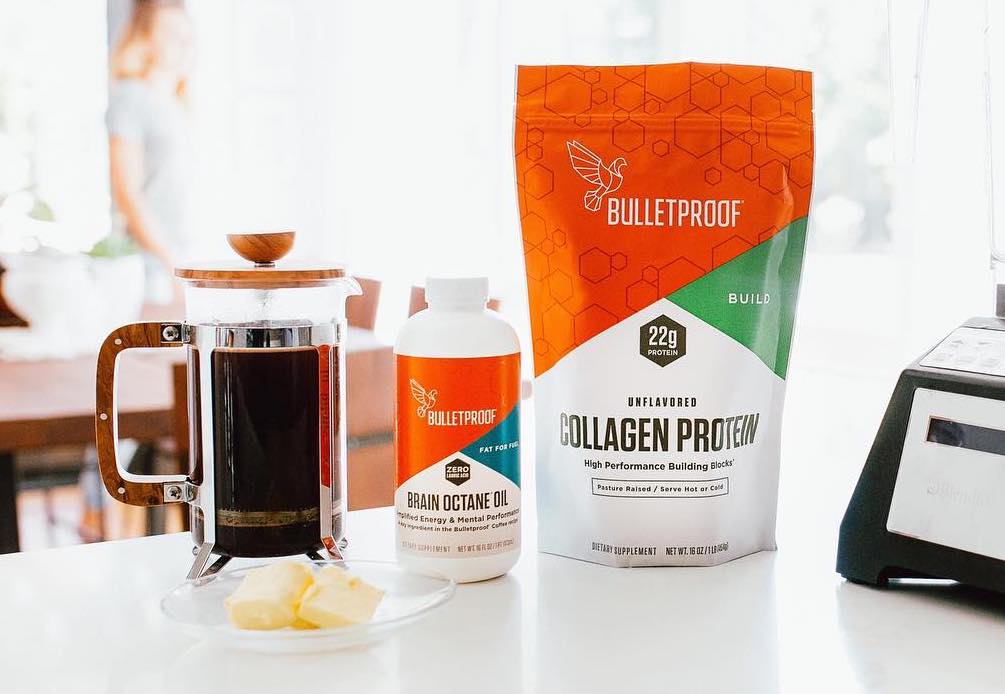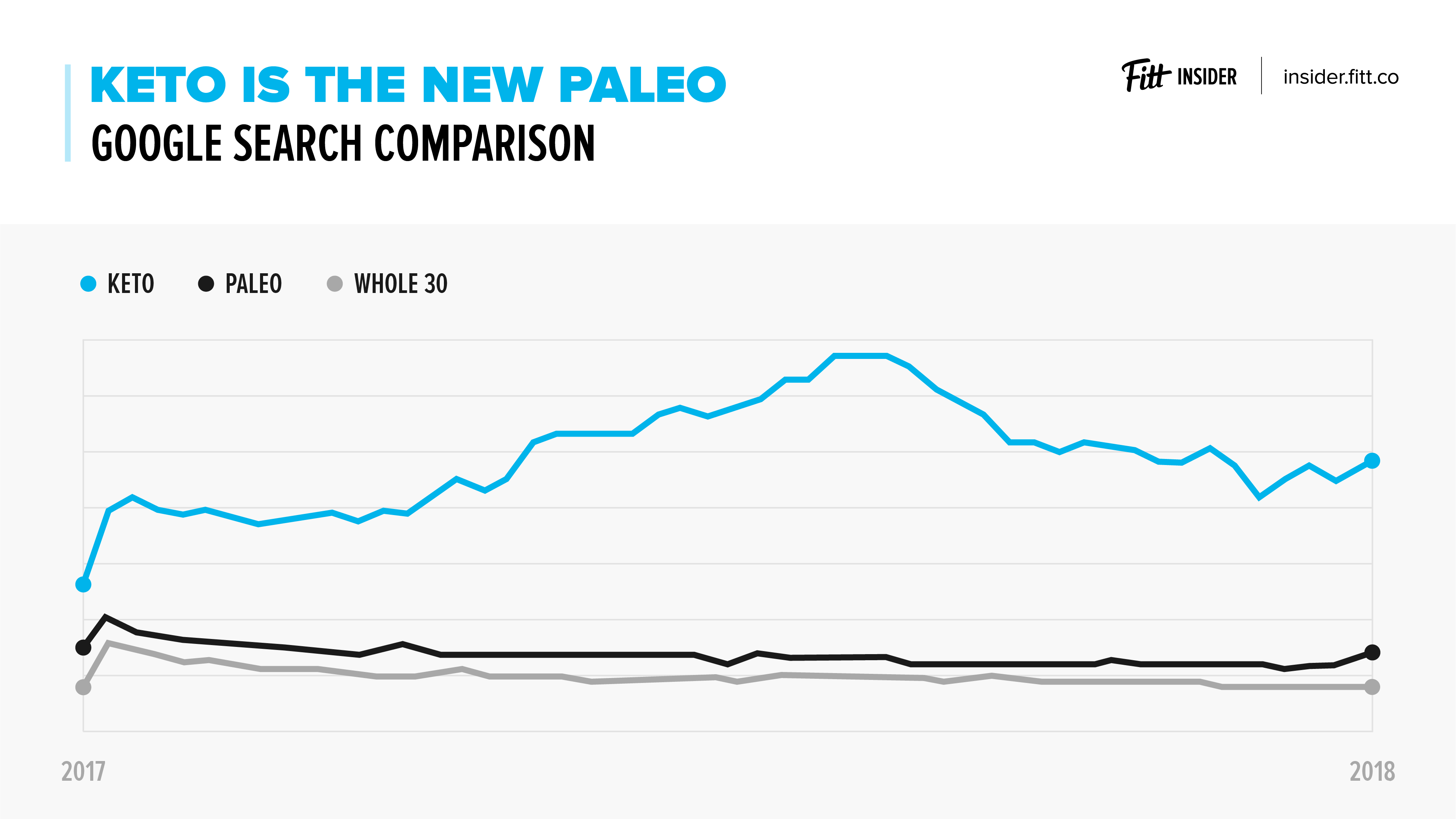With Chipotle announcing their keto-friendly menu and SlimFast hawking their take on a keto shake, there’s no denying the mainstream appeal of this fat-first diet. But taking a step back, it’s worth exploring how this diet, initially conceived as a treatment for epilepsy, overtook paleo and Whole30 as Google’s most searched diet term of 2018.
As is often the case with diet and weight loss trends, keto appears to have been vaulted into the spotlight by star power. Starting in 2013 with a series of podcast interviews, Tim Ferriss and Joe Rogan helped introduce the world to a group of keto masterminds, including Peter Attia, Valter Longo, and Dom D’Agostino. As an article in Men’s Health explained, within a year of D’Agostino’s appearance on Rogan, a podcast that has an audience of 30M monthly listeners, “keto cookbooks flooded the market, searches for keto hit 17M per month, and Orian Research estimated keto is a $5B industry.”
During the same period, venture capitalists began backing keto companies. To date, three keto-friendly concepts have cashed in big-time — Bulletproof, Ancient Nutrition, and Virta Health have raised a combined $250M to corner the market on ketones. When Dave Asprey, Bulletproof’s health-hacking founder and CEO spread the gospel of butter coffee, sales of its two key ingredients took off. As the super fats fueling the keto economy, the market for medium-chain triglycerides or MCTs is expected to reach $2.5B by 2025. Undergoing similar growth, sales of grass-fed butter rose 45% in 2018 as global butter sales expanded to $19.4B.
When consumers started going keto, online communities like Instagram’s #ketotransformation and Reddit’s r/keto subreddit popped up and, over time, ballooned to 678,000 posts and 1.1M members, respectively. As the opportunity became more obvious, the floodgates opened, and the period between 2013 and 2017 saw a fivefold increase in the number of new “keto” food and beverage products.
From Fat Snax to FBOMB and Know Brainer to Ample Foods, the keto craze came for everything, including cookies, nut butter, coffee creamer, and ready-to-drink meal replacements. Keto mania has even led to the creation of a “clean keto” seal of approval and National Keto Day, as brands think up new ways to ride the fat-focused wave. Looking ahead, following the keto trend seems like a smart business decision — some estimates expect the global keto diet market to reach $366B by 2022.
Food for thought: With the fat fad in full swing, founders, investors, retailers, and consumers can’t seem to get enough. But as more people cash in, it’s important to note that the keto craze isn’t free from controversy — there’s contradicting evidence of the diet’s effectiveness. Similarly, countless other diets, supplements, and entire companies (see: Goop) have been mired in skepticism. Still, despite the fact that weight loss and wellness companies struggle to back up their claims with science, many continue to find success — ultimately, they’re not accountable for actual results. It begs the question: What are the rules for creating, fueling, or capitalizing on a weight loss or wellness trend? Or is all fair in the business of wellness?





